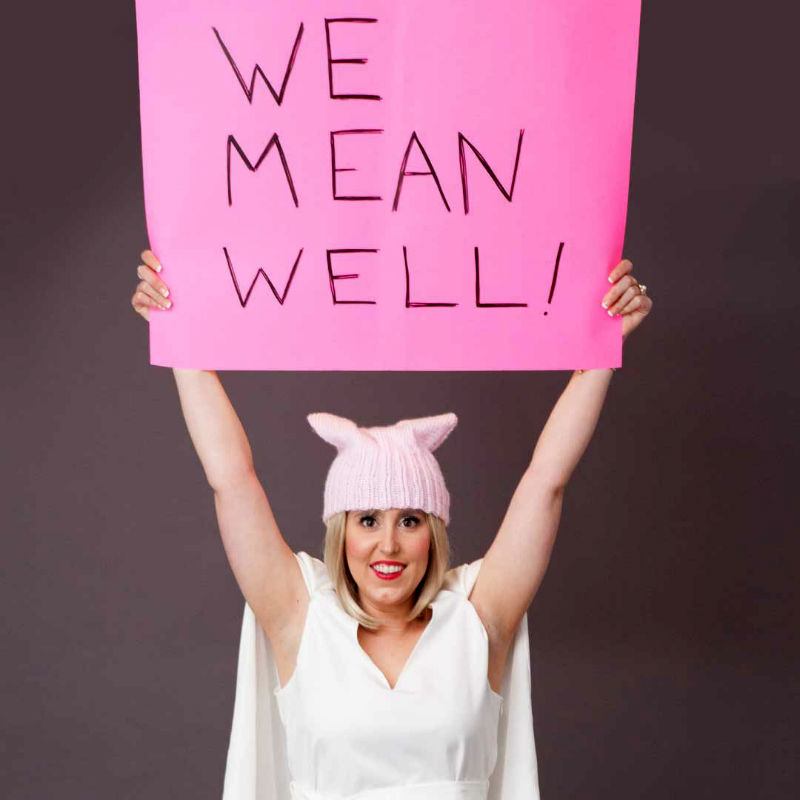For the 'Gram: Lee Minora’s “White Feminist” plays with doing-good-to-look-good activism

For one hour on Tuesday, my fellow theater-goers and I in the video studio of U-M's Duderstadt Center were transformed into the live studio audience for a fictional television morning talk show called Becky’s Time. Our host, Becky, portrayed by Lee Minora, was a blonde-haired, French-manicured, self-proclaimed feminist, ready to use her voice to fight for herself and for us -- whether we wanted her to or not.
White Feminist takes to task the white women who suddenly became “woke” after the 2016 presidential election, eager to jump in, take charge, and change the world, all while failing to realize that not only were people already doing that work, but they have been for decades. That day’s episode was devoted to “Ladies' Time” (or was it “Lady’s Time”?), yet there were no guests.
Becky told us that she and her family decided to devote their recent vacation to “voluntourism” (a current under-fire buzzword), when she forced an unnamed location to let her build a school for girls, which, she breezily admitted to us, she did very little personal work on. She proudly shared an anecdote about her daughter giving her iPad to one of the girls at the school, but she didn’t mention why this gift was beneficial -- other than to herself for bragging rights.
There is a lot of this “doing good to look good” throughout the show. "For the ‘Gram," as some might say. Becky used several hashtags, including one she opened the show apologizing for. In a recent #selfcareselfiesunday, Becky had posed wearing an activated charcoal cleansing face mask, which, she was informed, represented blackface and was racist.
When Becky moved on to reading tweets about the show, several of the tweets responded to this photo, chastising her for her failure. Other tweets disgustingly denigrated her as a woman. To me, this spoke of cancel culture and the typical misogyny found online. The tweets later flipped to love and support after Becky broke down and shared her experience of being assaulted by her boss years before. The Twitterverse is a fickle place.
During her breakdown, and before her admission, Becky wanted to know what she was supposed to do. Should she lean in or lean out? Did we want apologies? She apologized for things she did and that had nothing to do with her, such as the proliferation of yoga throughout the U.S. If she could give it back, she would. She meant well.
Most people do mean well, but we all make mistakes. This is how we learn and grow. White Feminist invited the audience to think hard about our own mistakes, how we handled them, and how we can do better. I was reminded to do my own work and not rely on others to do it for me, and especially not to speak over the people already there when I am new to the party.
As part of the show (real and fictional), randomly selected audience members were asked yes/no questions about current trends. It was hard for some to answer only yes or no, as these were often difficult topics that required more than a flippant one-word answer.
At the close of the show, Becky invited an audience member to crown her with a pink pussy hat. I’m not sure Becky really learned a lesson. I hope others did.
Crysta Coburn is a desk clerk with the Ann Arbor District Library, freelance writer, editor, and author.
“White Feminist” continues through February 9 at the Duderstadt Center. For more information and to purchase tickets, visit ums.org.


































